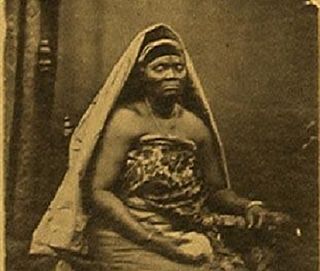Egba Alake | |
|---|---|
| Coordinates: 7°9′39″N3°20′54″E / 7.16083°N 3.34833°E | |
| Country | |
| State | Ogun State |
Egba Alake is one of the five sections of Egbaland, the others being Oke-Ona, Gbagura, the Owu and Ibara (historically, Ibara is part of Yewa, not Egba, although it is located in the present day Abeokuta geographically). It is a traditional state which joins with its bordering sections to form something of a high kingship. The Alake of Abeokuta, or Alake of Egbaland, is the traditional ruler of the Egba clan of Yoruba in the city of Abeokuta in southwestern Nigeria. [1]
A high king is a king who holds a position of seniority over a group of other kings, without the title of emperor. Similar titles include great king and king of kings. The high kings of history usually ruled over lands of cultural unity; thus high kings differentiate from emperors who control culturally different lands, and feudal monarchs, where subordinates assume lesser positions. High kings can be chosen by lesser rulers through elections, or be put into power by force through conquest of weaker kingdoms.

The Yorùbá people are an African ethnic group that inhabits western Africa. The Yoruba constitute about 44 million people in total. The majority of this population is from Nigeria, where the Yorùbá make up 21% of the country's population, according to the CIA World Factbook, making them one of the largest ethnic groups in Africa. Most Yoruba people speak the Yoruba language, which is the Niger-Congo language with the largest number of native, L1 or first language speakers.

Abeokuta is the state capital of Ogun State in southwest Nigeria. It is situated on the east bank of the Ogun River, near a group of rocky outcrops in a wooded savanna; 77 kilometres (48 mi) north of Lagos by railway, or 130 kilometres (81 mi) by water. As of 2006, Abeokuta and the surrounding area had a population of 449,088.
Contents
The Egba Alake section is seen by traditionalists as Abeokuta's aristocracy due to the fact that its principal noblemen, the Omo-Iya-Marun, serve as the kingmakers of the Alake, who must himself also come from this section.

The aristocracy is a social class that a particular society considers its highest order. In many states, the aristocracy included the upper class of people (aristocrats) with hereditary rank and titles. In some, such as ancient Greece, Rome, and India—aristocratic status came from belonging to a military caste, although it has also been common, notably in African societies, for aristocrats to belong to priestly dynasties. Aristocratic status can involve feudal or legal privileges. They are usually below only the monarch of a country or nation in its social hierarchy. In modern European societies, the aristocracy has often coincided with the nobility, a specific class that arose in the Middle Ages, but the term "aristocracy" is sometimes also applied to other elites, and is used as a more generic term when describing earlier and non-European societies.
A kingmaker is a person or group that has great influence on a royal or political succession, without themselves being a viable candidate. Kingmakers may use political, monetary, religious, and military means to influence the succession. Originally, the term applied to the activities of Richard Neville, 16th Earl of Warwick—"Warwick the Kingmaker"—during the Wars of the Roses (1455–1487) in England.








